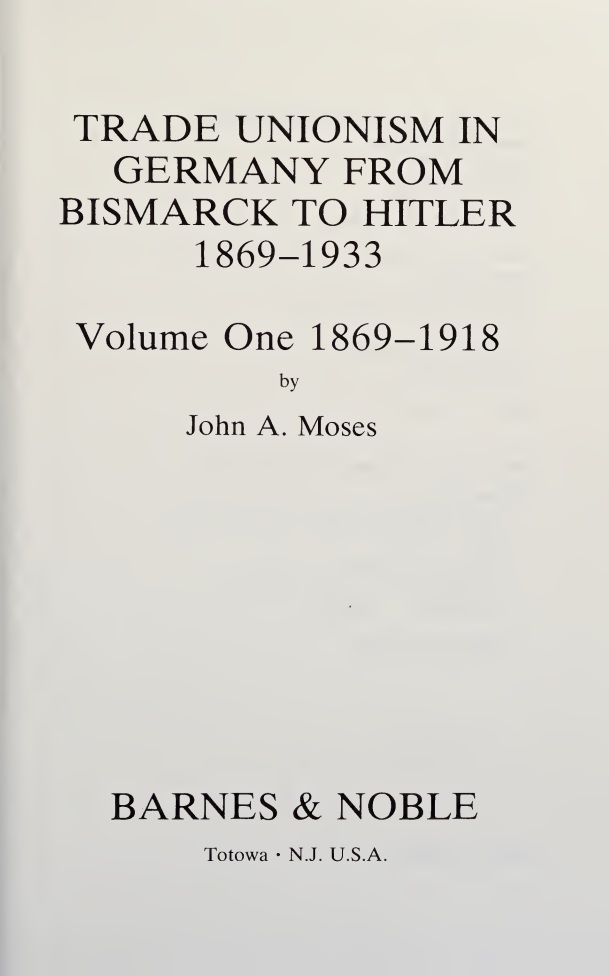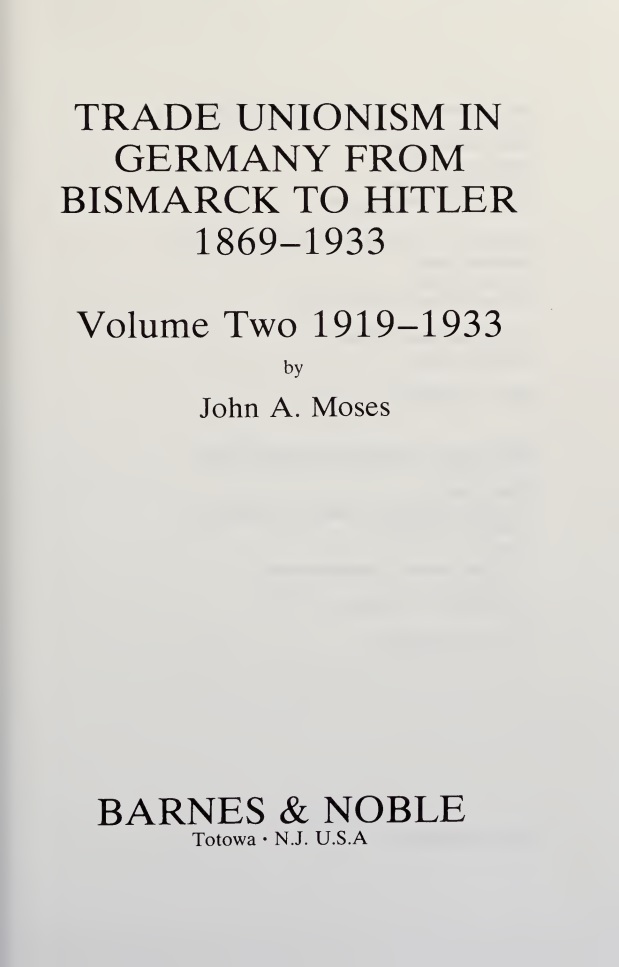Biblioteca / 1980-1989
John Moses. Trade Unionism in Germany from Bismarck to Hitler, 1869-1933.
Londres: George Prior Publishers, 1982.
Totowa, N.J.: Barnes & Noble, 1982.
2 volúmenes: 300+300 páginas.
CONTENTS
Volume One
1869-1918
PREFACE
INTRODUCTION
1 – Conflicting Theses: The Assessment of the Trade Union Role in German Politics 1890-1933
2 – German Trade Union Theory: Marxians versus Lassalleans 1847-1869
3 – Trade Union Thinking in Bismarckian Germany to 1878
4 – Trade Unionism under the Anti-Socialist Law 1879-1890
5 – The Wilhelmine Reich as Class State 1890-1914
6 – The Trade Union Struggle—Centralization to Neutralization 1890-1900
7 – The Trade Union Struggle—Equal Status and Recognition, 1900-1914
8 – Trade Unionism and Internationalism—A Conflict of Priorities
9 – In Defence of the Fatherland
10 – The Crucible of War
11 – Between Capitalism and Bolshevism
____________
Volume Two
1919-1933
12 – The Reckoning at Nuremberg 1919
13 – The Trade Union Stake in Weimar and the Works Councils Law
14 – From Kapp Putsch to Ruhr Struggle 1920-1924
15 – The Rise and Fall of Economic Democracy 1924-1930
16 – The Great Economic Crisis—Conflicting Solutions 1930-1932
17 – Between Resistance and Submission 1932-1933
APPENDICES
I – The “November Pact” 1918
II – Guidelines for the Future Efficacy of the Trade Unions
III – Resolution rescinding the “Mannheim Agreement of 1906”
IV – The Works Councils Act of 4.2.1920
V – ADGB Resolution demanding Job Creation
VI – Re-structuring the Economy—Guidelines
VII – The Development of Unemployment in Germany 1928-1939
VIII – Trade Union Membership in Germany 1912-1918
IX – Trade Union Membership in Germany 1919-1932
X – “Leipart to Hitler” 21 March 1933
XI – Reichstag election results according to parties 1871-1933
XII – Works Councils Elections March 1933

